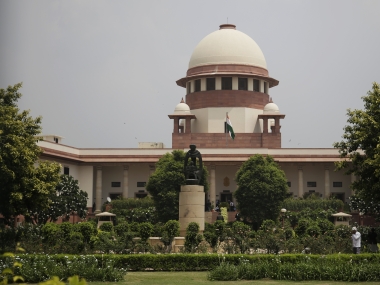The Supreme Court on Monday sought details of complaints received by internet majors like
Google
,
Yahoo
and
Facebook
and instant messaging application
WhatsApp
in India regarding uploading of objectionable contents on child pornography, rape and gangrape. A division bench of Justice Madan B Lokur and Justice UU Lalit asked them to submit details in 2016 and in 2017 till 31 August. [caption id=“attachment_3998475” align=“alignleft” width=“380”] Representational image. AP[/caption] The bench also sought to know the action taken by them on such complaints. The Ministry of Home Affairs was also asked to inform it about the number of prosecution under the provisions of the Protection of Children from Sexual Offences Act, during this period. The court’s order came on suo moto cognisance it took on a letter sent to the then Chief Justice of India HL Dattu by Hyderabad-based NGO Prajwala, along with two rape videos in a pen drive. The letter stated about posting of these videos on WhatsApp and sought the Central Bureau of Investigation be asked to launch a probe and apprehend the culprits. Earlier this year, the government had
expressed helplessness
about checking objectionable content uploaded on WhatsApp. On being asked whether the government had any plans to stop sharing of objectionable videos through mobiles and WhatsApp, then IT minister Ravi Shankar Prasad cited laws that deal with offences of publishing or transmitting objectionable content. He admitted that instances of objectionable videos being uploaded through mobile phones and shared through WhatsApp have been noticed but added that messages are end-to-end encrypted and cannot be seen by a third party. “Instances of objectionable videos being uploaded through mobile phones and shared through WhatsApp have been noticed. According to WhatsApp, the messages are end-to-end encrypted and they and any third party cannot read them. In other words, the messages are only seen by the sender and the receiver,” he said in the reply. With inputs from IANS
Representational image. AP[/caption] The bench also sought to know the action taken by them on such complaints. The Ministry of Home Affairs was also asked to inform it about the number of prosecution under the provisions of the Protection of Children from Sexual Offences Act, during this period. The court’s order came on suo moto cognisance it took on a letter sent to the then Chief Justice of India HL Dattu by Hyderabad-based NGO Prajwala, along with two rape videos in a pen drive. The letter stated about posting of these videos on WhatsApp and sought the Central Bureau of Investigation be asked to launch a probe and apprehend the culprits. Earlier this year, the government had
expressed helplessness
about checking objectionable content uploaded on WhatsApp. On being asked whether the government had any plans to stop sharing of objectionable videos through mobiles and WhatsApp, then IT minister Ravi Shankar Prasad cited laws that deal with offences of publishing or transmitting objectionable content. He admitted that instances of objectionable videos being uploaded through mobile phones and shared through WhatsApp have been noticed but added that messages are end-to-end encrypted and cannot be seen by a third party. “Instances of objectionable videos being uploaded through mobile phones and shared through WhatsApp have been noticed. According to WhatsApp, the messages are end-to-end encrypted and they and any third party cannot read them. In other words, the messages are only seen by the sender and the receiver,” he said in the reply. With inputs from IANS
Supreme Court has sought details of complaints to Google, Facebook, WhatsApp over uploading of objectionable content
tech2 News Staff
• September 5, 2017, 09:05:33 IST
A division bench of Justice Madan B Lokur and Justice UU Lalit asked them to submit details in 2016 and in 2017 till 31 August.
Advertisement
)
End of Article